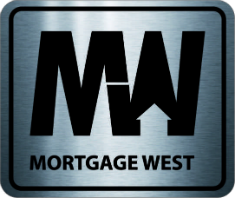
Conventional vs. High-Ratio or Insured
A conventional mortgage is a mortgage that has a principal amount that is no more than 80% of the appraised value or purchase price of the property, whichever is less. The principal amount of a high-ratio or insured mortgage is usually more than 80% of the appraised value or purchase price. A high-ratio mortgage or insured mortgage may also be referred to as an NHA mortgage because it may be entered under the provisions of the National Housing Act and in many cases must, by law, be insured. In general, the borrower pays the insurance premium as well as application, legal, and property appraisal fees.
Closed vs. Open
Closed mortgages generally offer lower interest rates than open mortgages of the same term, but open mortgages let you pay off as much as you want, any time, without paying a prepayment charge.
Short Term vs. Long Term
The term you select is important, too. Short term mortgages are appropriate if you believe interest rates will be lower at renewal time. Long term mortgages are suitable if you feel current rates are reasonable and you want the security of budgeting for the future. This may be especially important for first time home buyers.
Fixed vs. Variable Rate
You can choose a fixed or variable interest rate. A fixed rate mortgage makes it easier for you to budget for whatever term you select. A variable rate mortgage fluctuates with the market.
Specialty mortgages creatively combine the best of all worlds. Your Mortgage West Advisor can help you select the options that are best for you.
Mortgage Life Insurance
It’s a sound idea to seriously consider mortgage life insurance. Generally, the cost is low and can be incorporated into your mortgage payments. In the event of death or disability, you can have peace of mind knowing that your home will be protected. Quotes are available with each approved mortgage.
Affordability and Financing
Talk with your Mortgage West Advisor to review your affordability and finances. We’ll help you take into account how your new mortgage may change your monthly expenses. Securing a pre-approved mortgage with a lender that checks your credit rating will allow you to get an idea about how much mortgage you may qualify for, so you can have a price range in mind when you look at different properties.
Lenders determine affordability by looking at your Gross Debt Service ratio (GDS) and your Total Debt Service ratio (TDS). The GDS ratio is based on what you can afford to pay each month; it includes mortgage payments, taxes and utilities. The TDS ratio includes everything covered under GDS plus all your other financial obligations.
A Mortgage West Advisor can help you do a complete analysis based on net income and projected budgets to determine what you can comfortably afford.
The pre-qualifying stage is also the time to learn the difference between conventional mortgages and high-ratio insured mortgages, and assistance programs for first time homebuyers.
A Mortgage West Advisor will also discuss closing costs with you, such as land transfer taxes, legal fees, and other disbursements. Before you’re pre-qualified, your Mortgage West Advisor will run your credit bureau report and ask for written confirmation of income, as well as how much you plan to put down on your purchase.
Once you’re pre-qualified, the interest rate may be guaranteed for 60 to 90 days from the time of your application. If rates drop, you’ll get the lower rate; if they rise, you’re covered. And just because you pre-qualified, you are by no means committed to only that lender. We will continue to shop the market and get you the deal that will best suit your needs!
Prepayment Privileges
Financial institutions vary in their prepayment privileges, which let you pay down your mortgage faster. Your Mortgage West Advisor can discuss your prepayment options with you, based on the mortgage you select. Also be aware that the longer the amortization period (the time it takes to pay off a mortgage), the more interest you’ll end up paying. Amortization periods usually range from 5 to 25 years.
Weekly or biweekly instead of monthly payments could shave a considerable amount off your overall mortgage interest payments, depending on current interest rates.
Another option to consider is portability, which may help to ensure that you have financing if you sell your original home and purchase a new one. You may also wish to consider whether, if you sell your home, your mortgage could be assumed by the buyer. This can be a major advantage if your mortgage rate is below current market rates.

